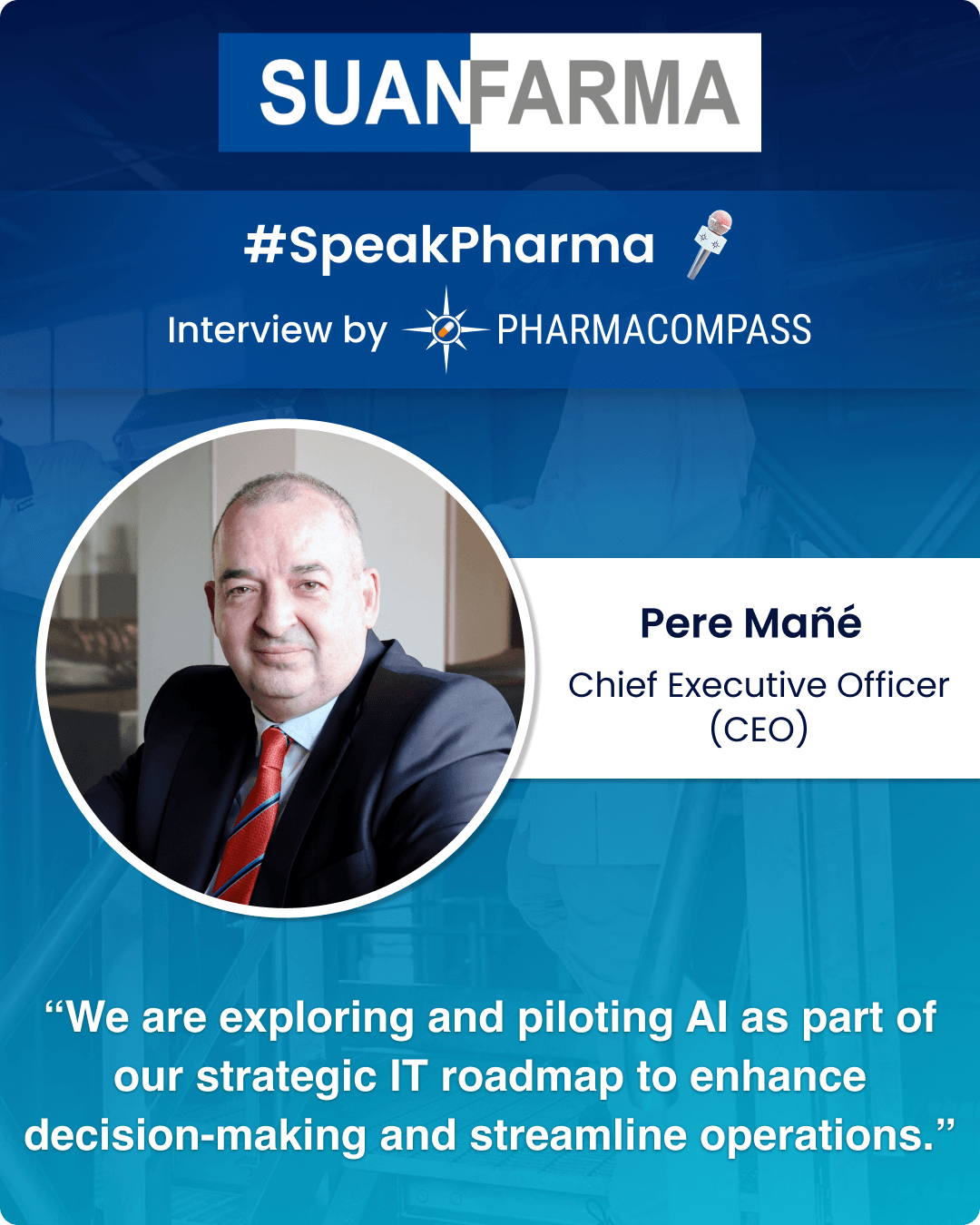BLOG
MARKET INTEL by PharmaCompass
CONTENT by Suppliers
- Interview #SpeakPharma
- Video #SupplierSpotlight
- Vlog #PharmaReel
- Company Bio #AboutSupplier
- Service Bio #AboutCapabilities
News
Create content with us, ask us


- AEROSOL
- BIOLOGIC DRUGS
- CAPSULE
- CREAM / LOTION / OINTMENT
- ELIXIR
- EMULSION
- FILM
- GEL
- GRANULE / PELLET
- DIETARY SUPPLEMENT (NUTRACEUTICAL)
- INJECTABLE / PARENTERAL
- LIPOSOME / MICROSPHERE / NANOPARTICLE
- LIQUID
- MEDICAL DEVICE
- PASTE
- PATCH
- PESSARY
- POWDER
- SOFTGEL CAPSULE
- SOLUTION
- SPRAY
- SUPPOSITORY
- SUSPENSION
- SYRUP
- TABLET
- VETERINARY
- NASAL
- TROCHE & LOZENGE
- LYOPHILIZATION
- DENTAL
- RAW MATERIALS
- TECHNOLOGIES
- EQUIPMENT
- COMPOUNDING

01 Clinical Supply
02 Clinical Supply
03 Clinical Supply
04 Clinical Supply
05 Clinical Supply
06 Clinical Supply
07 Clinical Supply
08 Controlled Substance
09 Controlled Substance
10 Controlled Substance
11 Controlled Substance
12 High Potency APIs (HPAPIs)
13 High Potency APIs (HPAPIs)
14 Overview
15 Overview
16 Overview
17 Overview
18 Overview
19 Overview
20 Overview
21 Overview
22 Overview
23 Overview
24 Overview
25 Overview
26 Overview
27 Overview

01 AUPA Biopharm
02 AbbVie Contract Manufacturing
03 Aenova Group
04 Aeron Remedies
05 Aesica Pharmaceuticals Limited
06 Appco Pharmaceutical Corp
07 Athens Life Science
08 Atral
09 Aurigene Pharmaceutical Services
10 Axxelent Pharma Science
11 BILCARE GCS
12 Baxter Laboratories
13 Biological E
14 Biopharma Group
15 Bioplus Life Sciences
16 Bora Pharmaceuticals
17 COC Farmaceutici
18 Cambrex Corporation
19 Catalent Pharma Solutions
20 Chanelle Medical
21 CordenPharma
22 Curtis Health Caps
23 Cyndea Pharma S.L
24 DPT Laboratories, Ltd
25 Darnytsia
26 Douglas CDMO
27 Ethypharm
28 Eurofins CDMO
29 Ever Pharma
30 Farbe Firma
31 Fareva
32 Frike Group
33 Gensenta Pharmaceuticals
34 Gracure Pharmaceuticals Limited
35 Grand River Aseptic Manufacturing
36 Grindeks AS
37 Grunenthal
38 Halo Pharmaceutical
39 Humanis
40 ICE Pharma
41 IGS Aerosols GmbH
42 Innoxel Lifesciences
43 JGL d.d
44 Juniper Pharmaceuticals, Inc
45 Kampotu
46 LGM Pharma
47 Laboratoires Chemineau
48 Laboratoires Gilbert
49 Legacy Pharmaceuticals Switzerland
50 Madras Pharmaceuticals
51 Mikart
52 Mission | CDMO
53 NovaCina
54 Noveayr Therapeutics
55 Octavius Pharma Pvt. Ltd
56 Omni Protech Drugs
57 One Pharma
58 Panacea Biotec Limited
59 Pierre Fabre
60 Piramal Pharma Solutions
61 Porton Pharma Solutions
62 Prague Scientific
63 Quality CDMO
64 Quotient Sciences
65 Rafarm S.A
66 Sharp
67 Sirio Pharma Co. Ltd
68 Sofarimex
69 Softigel Procaps
70 Stason Pharmaceuticals, Inc.
71 Sterling Pharma
72 TriRx Pharmaceutical Services
73 US Pharma
74 Unither Pharmaceuticals
75 Vici Health Sciences
76 Wasdell Group
77 WellSpring Consumer Healthcare

01 Australia
02 Austria
03 China
04 Colombia
05 Croatia
06 Czech Republic
07 France
08 France
09 Germany
10 Germany
11 Greece
12 India
13 India
14 Ireland
15 Italy
16 Italy
17 Latvia
18 Luxembourg
19 New Zealand
20 Poland
21 Portugal
22 Spain
23 Switzerland
24 Taiwan
25 Turkey
26 U.S.A
27 U.S.A
28 U.S.A
29 U.S.A
30 U.S.A
31 U.S.A
32 U.S.A
33 Ukraine
34 United Kingdom
35 United Kingdom
- Analytical > Analytical Method Development
- Analytical > Analytical Testing Services > Inhalation Products
- Analytical > BioAnalytical Services
- API & Drug Product Development > API Development
- API & Drug Product Development > API Development > Antibody Drug Conjugate
- API & Drug Product Development > API Development > Fine Chemical / Intermediate
- API & Drug Product Development > API Development > High Potency APIs (HPAPIs)
- API & Drug Product Development > API Development > Impurity / Reference Standard
- API & Drug Product Development > API Development > Oligonucleotide / Polynucleotide
- API & Drug Product Development > API Development > Oligonucleotide / Polynucleotide
- API & Drug Product Development > API Development > Oligosaccharides & Polysaccharides
- API & Drug Product Development > API Development > Overview
- API & Drug Product Development > API Development > Process Development & Optimization
- API & Drug Product Development > API Development > Protein / Peptide
- API & Drug Product Development > API Development > Separation & Purification
- API & Drug Product Development > API Development > Small Molecules
- API & Drug Product Development > API Development > Spray Drying
- API & Drug Product Development > Formulation Development
- API & Drug Product Development > Formulation Development > Buccal / Orodispersible
- API & Drug Product Development > Formulation Development > Capsule
- API & Drug Product Development > Formulation Development > Chewable / Suckable
- API & Drug Product Development > Formulation Development > Clinical Supply
- API & Drug Product Development > Formulation Development > Compounding
- API & Drug Product Development > Formulation Development > Controlled / Immediate / Modified Release
- API & Drug Product Development > Formulation Development > Controlled Substance
- API & Drug Product Development > Formulation Development > Granule / Pellets
- API & Drug Product Development > Formulation Development > Inhalation / Nasal
- API & Drug Product Development > Formulation Development > Injectable / Parenteral
- API & Drug Product Development > Formulation Development > Liquid Formulation
- API & Drug Product Development > Formulation Development > Lyophilization
- API & Drug Product Development > Formulation Development > Ophthalmic
- API & Drug Product Development > Formulation Development > Pediatric Formulation
- API & Drug Product Development > Formulation Development > Scale-Up Capabilities
- API & Drug Product Development > Formulation Development > Sterile Liquid Formulation
- API & Drug Product Development > Formulation Development > Suspension
- API & Drug Product Development > Formulation Development > Tablet
- API & Drug Product Development > Formulation Development > Topical
- API & Drug Product Development > Preformulation & Material Science > Particle Size Reduction & Micronization
- API & Drug Product Development > Preformulation & Material Science > Polymorph & Crystal Screening
- API & Drug Product Development > Preformulation & Material Science > Solubility Assessment & Enhancement
- API & Drug Product Development > Preformulation & Material Science > Taste Masking
- API Manufacturing > Antibiotic
- API Manufacturing > Antibody Drug Conjugate
- API Manufacturing > Biologics, Bioprocess & Fermentation
- API Manufacturing > Chiral Synthesis
- API Manufacturing > Clinical Supply
- API Manufacturing > Continuous Flow Process
- API Manufacturing > Contract Manufacturing
- API Manufacturing > Controlled Substance
- API Manufacturing > Custom Synthesis & Manufacturing
- API Manufacturing > Cytotoxic Compound
- API Manufacturing > Drying > Spray Drying
- API Manufacturing > Fine Chemical / Intermediate
- API Manufacturing > GMP Manufacturing
- API Manufacturing > Hazardous Chemistry
- API Manufacturing > High Potency APIs (HPAPIs)
- API Manufacturing > Micronization
- API Manufacturing > Oligonucleotide / Polynucleotide
- API Manufacturing > Oligosaccharides & Polysaccharides
- API Manufacturing > Organometallic Chemistry
- API Manufacturing > Organometallic Chemistry > Cyanation
- API Manufacturing > Organometallic Chemistry > Metal Hydride Reduction
- API Manufacturing > Ozonolysis
- API Manufacturing > Process Development & Optimization
- API Manufacturing > Protein / Peptide > Synthesis
- API Manufacturing > Reference Standard
- API Manufacturing > Scale Up
- API Manufacturing > Separation & Purification
- API Manufacturing > Small Molecules
- Clinical Trials > Compliance, Regulatory & Consulting
- Clinical Trials > Packaging & Logistics
- Clinical Trials > Medical Writing & Language Translation
- Clinical Trials > Patient / Investigator Recruitment
- Clinical Trials > Technology / Data / Analytics
- Drug Product Manufacturing > Biologic Drugs
- Drug Product Manufacturing > Capsule
- Drug Product Manufacturing > Capsule > Steroid / Hormone
- Drug Product Manufacturing > Compounding
- Drug Product Manufacturing > Cream / Lotion / Ointment
- Drug Product Manufacturing > Emulsion > Overview
- Drug Product Manufacturing > Gel > Overview
- Drug Product Manufacturing > Granule / Pellet
- Drug Product Manufacturing > Injectable / Parenteral
- Drug Product Manufacturing > Injectable / Parenteral > Overview
- Drug Product Manufacturing > Injectable / Parenteral > Pre-Filled Syringe
- Drug Product Manufacturing > Liquid
- Drug Product Manufacturing > Lyophilization
- Drug Product Manufacturing > Nasal
- Drug Product Manufacturing > Softgel Capsule
- Drug Product Manufacturing > Solution > Overview
- Drug Product Manufacturing > Spray
- Drug Product Manufacturing > Suppository
- Drug Product Manufacturing > Suspension > Overview
- Drug Product Manufacturing > Syrup
- Drug Product Manufacturing > Tablet
- Drug Product Manufacturing > Technologies
- Drug Product Manufacturing > Technologies > Orally Disintegrating Tablets (ODTs)
- Drug Product Manufacturing > Technologies > Taste Masking
- Packaging > Clinical Services
- Packaging > Contract Services
- Packaging > Contract Services > Serialization Compliance
- Packaging > Logistic Services
- Empty Capsules
- Empty Capsules > Clinical Supply
- Empty Capsules > HardGel
- Empty Capsules > Inhalation
- Emulsifying Agents
- Soft Gelatin
- Solubilizers
Looking for oral liquid dosage forms? Find a CMO offering pharmaceutical oral solutions, syrups, suspensions & other liquid orals on PharmaCompass.
Q1. What are pharmaceutical liquid dosage forms?
Liquid dosage forms are prepared by dissolving active pharmaceutical ingredients (API) in aqueous and nonaqueous solvents, suspending the API in appropriate mediums, or by incorporating the drug substances into oil or water phases. Pharmaceutical liquids therefore come in a variety of formulations.
Liquid dosage forms are available as monophasic and biphasic formulations. While monophasic liquid dosage forms are true (single phase) or colloidal solutions, liquids which consist of two phases are known as biphasic liquids.
Liquids may also be classified as non-sterile and sterile liquid dosage forms. Sterile liquid products are liquid dosage forms of therapeutic agents that are free from viable microorganisms. Sterile liquids are administered parenterally via the subcutaneous, intramuscular, or intravenous route of drug administration.
Meanwhile, non-sterile liquids are prepared in environments which are clean, but not completely free of microorganisms. These non-sterile liquid drug products are meant for internal or external use. Once a non-sterile liquid dosage form is prepared it can be administered by the oral or topical route of drug administration.
When developing pharmaceutical liquid dosage forms, such as liquid oral dosage forms, consideration is first given to the characteristics of the active drug or drugs selected for administration. APIs thus play an important role in determining the type of liquid pharmaceutical formulations that are formed.
Consideration is first given to the characteristics of the active drug, as the major challenges in contract development and manufacturing services for liquid dosage forms are (i) the stability of a drug in a solution, (ii) the solubility of a drug at the required level, and (iii) acceptable taste.
For the preparation of liquid dosage forms, such as liquid oral dosage forms, a lot of additive ingredients are also needed. Pharmaceutical excipients used in liquid dosage forms may include vehicles, stabilizers, preservatives, suspending agents, emulsifying agents, solubilizers, colors, flavors, etc.
Furthermore, liquid dosage forms offer certain benefits over other specialist dosage forms such as increased patient compliance, faster absorption, and more flexibility in dosing. Some other important advantages of pharmaceutical liquid dosage forms (LDFs) include:
- Very useful for those patients who have trouble swallowing complex oral solid dosage forms.
- Increases patient convenience and patient compliance (e.g. liquid oral dosage forms as compared to oral solid dosage forms).
- Flavors (sweetening agents/sugar) can be added to mask the bitter or unpleasant taste and odor.
- Rate of absorption of a liquid oral dosage form is faster than an oral solid dosage form.
- Liquid dosage forms enable dosing flexibility.
- It is suitable for use by infants, geriatric patients, and those suffering from mental health problems.
- It can be designed for many routes of administration.
Q2. What are the different types of oral non-sterile liquid dosage forms?
Liquid dosage forms serve as drug delivery solutions for both oral drug delivery as well as parenteral routes of drug delivery. However, oral liquids are non sterile, whereas liquids administered by the parenteral route are available as sterile pharmaceutical formulations.
Non-Sterile Liquid Dosage Form
Non-sterile manufacturing involves creating a medication in a clean environment, but does not require the environment to be completely free from all microorganisms.
Liquid dosage forms administered orally are usually available as non-sterile preparations such as oral suspensions, oral solutions, oral syrups, etc. Some topical specialist dosage forms are also present as non-sterile liquid medications including topical solutions, lotions and liniments.
Some Types of Oral Non-Sterile Liquid Dosage Forms:
- Suspensions
Suspensions are a widely used pharma liquid dosage form. They may be defined as preparations containing finely divided drug particles distributed somewhat uniformly throughout a medium in which the drug exhibits a minimum degree of solubility. Non-sterile suspensions facilitate oral drug delivery.
- Solutions
Solutions are defined as liquid preparations, meant to be taken orally, in which active ingredients and various excipients are dissolved in a given solvent. Non sterile solutions are extensively used as oral drug delivery solutions.
- Syrups
Liquid syrups are viscous oral solutions that contain one or more active ingredients. The base contains large amounts of sugar such as sucrose or sorbitol, which can inhibit crystallization, or change taste, base properties and/or modify solubilization.
- Elixirs
They are clear, sweetened hydro-alcoholic oral solutions and are usually flavored to enhance palatability. They are not as sweet syrups and are significantly less viscous than them.
- Drops
Drops are liquid preparations for oral use that are intended to be administered in small volumes with the aid of a suitable measuring device. They may be available in the form of oral solutions, suspensions or emulsions.
- Oral Linctuses
Linctuses are syrupy or sticky solution preparations containing medicaments exerting local action on the mucous membrane of the throat. Oral linctuses are often used to formulate liquid oral syrups for treating coughs.
- Mouth Washes/Gargles
Oral mouthwashes or gargles are solutions designed to treat infections and inflammations of the oral cavity. They are not meant to be swallowed.
Q3. What are the steps involved in the manufacturing of oral solutions and suspensions?
Whether it is a suspension or a solution, the non-sterile manufacturing (offered by CDMOs and CMOs with non-sterile processing capabilities) of oral liquid dosage forms offer a number of advantages: They allow for individual dosing, are easy to swallow and are suitable for pediatric or geriatric applications.
On the other hand, formulators face considerable challenges concerning solubility, API stability in aqueous systems, or taste during the drug product development (pharmaceutical product development) and pharmaceutical manufacturing of liquid orals. If that’s the case, it’s beneficial to outsource drug product development and manufacturing of oral liquids to contract manufacturers, CMOs and CDMOs.
Various CDMOs and CMOs carry out the following steps for the clinical and commercial manufacturing of oral solutions and suspensions:
Step 1: Selecting raw materials
Excipient selection is one of the most important steps in the drug product development (pharmaceutical product development) & pharmaceutical contract manufacturing of oral solutions and suspensions. In suspensions suspending mediums and suspending agents are selected and in solutions suitable solutes and solvents are selected, at this stage.
Step 2: Regulating particle size distribution
The particle size distribution in oral solutions and suspensions development and manufacturing is a critical parameter that significantly impacts the bioavailability and pharmacokinetics of the pharmaceutical product.
Step 3: GMP Manufacturing Process
The following steps are carried out during the non-sterile contract manufacturing for oral solutions and suspensions.
- Manufacturing for Oral Suspensions
1. Grinding insoluble ingredients into a smooth paste with a vehicle containing the wetting agent.
2. Dissolving soluble ingredients in the same portion of the vehicle, adding to paste created in step 1, and making a slurry.
3. Transferring the slurry to a graduated cylinder and rinsing the mortar with successive portions of the vehicle.
4. Adding the vehicle containing the suspending agent (or) flocculating agent to the slurry.
5. Making the dispersion up to the final volume.
- Non-sterile manufacturing for oral solutions
1. Preparing the raw materials, solutes and solvents, for use in the GMP manufacturing process.
2. Preparing the continuous phase of the liquid solutions.
3. Preparing the dispersed phase of the solution.
4. Preparing the finished liquid solution product by dissolving the solutes in the solvents or the dispersed phase in the continuous phase.
Step 5: Scale-Up
Scale-up is generally defined as a manufacturing process which enables increasing batch sizes. In suspension and solution scale-up, a formula is transformed into a viable, robust pharmaceutical product by the development of reliable and practical methods of pharmaceutical manufacturing or contract manufacturing, that affect the orderly transition from laboratory to full-scale production.
Step 6: Packaging
After scale-up, suitable pharmaceutical packaging materials are selected. Once an oral solution or suspension is prepared at a large scale it can be filled into bottles or other packaging materials. Finally, after primary and secondary packaging is complete, the non-sterile liquid drug products are ready for commercialization.
Step 7: Regulatory compliance
All of this pharmaceutical formulation design and drug product development (pharmaceutical product development) work should ultimately culminate into a regulatory filing in accordance with regulatory guidelines for the liquid solution or suspension dosage form.
Q4. What are the different packaging materials available for non sterile liquids?
Primary & Secondary Packaging Contract Services
The packaging presentation of pharmaceutical non-sterile liquid dosage forms (specialist dosage forms) is a critical step in maintaining chemical and physical stability, compliance, adherence, and it facilitates proper handling by the target patient population, caregivers, and health-care professionals
The most common packaging presentations for commercial non-sterile liquid drug products are glass bottles, plastic bottles, practical single-dose sachets, liquid stick packs, etc. Some of these primary packaging materials for liquid dosage forms are explored in detail below.
Primary Packaging
- Glass and plastic bottles
Glass and plastic bottles are primary packaging materials available for the pharmaceutical contract packaging of non-sterile liquid dosage forms. A bottle is defined as a container with a more or less pronounced neck and usually a flat bottom, which is done to protect medicines from superfluous materials. Depending on the material used to prepare the primary packaging bottles, they may be classified into glass bottles or plastic bottles.
- Aluminium caps or plastic stoppers
Aluminium caps or plastic stoppers are primary packaging materials which serve as closures. Closures are defined as any materials used for closing medicinal products in their primary packaging vessels so that the products are properly contained and protected. Closures may be re-opened or closed depending upon a consumer's requirements.
- Liquid stick packs
While glass or plastic bottles are not ready-to-use liquid packaging, liquid stick packs are a type of flexible pouch which serves as a ready-to-use liquid medical primary packaging. The packs themselves are sealed on two shorts ends and have a seal down the back. Ready-to-use liquid stick packs can be emptied almost completely, easily consumed and transported, and are eco-friendly making this type of packaging increasingly popular with consumers.
Secondary packaging
After the oral formulations (pharmaceutical non-sterile liquid dosage forms) are packaged into their primary containers, they undergo secondary packaging offered by contract packagers before they can be distributed. Secondary pharmaceutical contract packaging services provide the packaging that holds together the individual units of a good (primary packaged goods), often grouping them into multipacked units.
It is not designed to hold the drugs (that is the job of primary packaging services), but to deliver mass quantities of the primary packaged drugs to the point of sale or end user. Secondary packaging may include cartons, boxes, trays, bundles, pouches, etc.
Full Service Serialization & Labelling
Full service serialization and labelling activities come into play in both primary and secondary packaging contract services.
- During primary packaging, pharmaceutical serialization serves to assign a unique serial number or serialization code to each saleable unit of a prescription drug product linked to information about the product's origin, batch, and expiration date via the company’s serialization equipment.
- Secondary packaging also undergoes pharma serialization and aggregation. While pharma serialization in itself adds a unique identifier to each product in a serialization line setup, an aggregation solution adds codes to the outside of secondary medical packagings all the way up to cases and pallets. This makes it easier to track medicinal products throughout the supply chain.
Once these primary and secondary packaging activities along with proper serialization and aggregation of the primary and secondary packaging is complete, these goods are ready for distribution. There are many contract packagers or co-packers that enable the outsourcing of primary and secondary packaging contract packaging services as well as full service serialization.
Q5. Which are the leading pharmaceutical contract manufacturers offering liquid dosage forms?
There are numerous CDMOs and CMOs offering integrated pharmaceutical development and manufacturing services and stand alone pharmaceutical contract manufacturing (clinical and commercial manufacturing) for liquid dosage forms. Similarly, there are various contract packagers offering pharmaceutical contract packaging services for non sterile liquids.
Fermion Oy - Liquid drug product manufacturing
Fermion, through its mother company Orion, has manufacturing capabilities for liquids, solutions, suspensions, gels, creams and ointments with potent OEB4-5 APIs. Fermion offers contract development and manufacturing services for hormonal and non-hormonal semi-solids and liquids.
Sharp - Clinical manufacturing services for liquids
Sharp is engaged in manufacturing services for the development of ethical, over-the-counter products including liquids, suspensions, tablets (immediate and controlled release), powders, solid and liquid combination fills, etc.
Wasdell Group - Pharmaceutical contract manufacturing for oral liquids
The Wasdell Group is a fast-growing contract service partner offering end-to-end supply chain services. It also supports customers from clinical to commercial manufacturing, with a particular focus on flexible, small batch packaging & liquid oral or oral liquid manufacturing.
Wasdell’s contract manufacturing team offers agile drug delivery solutions for non-sterile manufacturing requirements. They offer clinical and commercial manufacturing of oral liquid dosage forms.
AMRI - Liquid contract development and manufacturing services
Albany Molecular Research Inc. (AMRI) is a global contract research and manufacturing organization offering integrated pharmaceutical development and manufacturing services, that has been working with the Life Sciences industry to improve patient outcomes for more than two decades.
AMRI offers specialized aseptic development and non-sterile contract manufacturing for oral solutions and other liquid dosage forms for early-stage clinical trials. They have non-sterile processing capabilities offering both sterile and non-sterile contract manufacturing services along with clinical manufacturing for oral solutions.
JGL d.d - Manufacturing of non sterile solution
JGL offers contract development and manufacturing services for non sterile solutions. They have a fully automated filling and packaging line for syrups and drops, for outdoor use, which are dosed in glass or plastic bottles of 10 to 150 ml.
JGL also offers sterile clinical and commercial manufacturing services. They provide a complete suite of integrated pharmaceutical development and manufacturing services for complex oral solid and liquid dosage forms as well as all sterile dosage forms — routinely handling nearly every category of sterile liquid, suspended or lyophilized biological or pharmaceutical product. They also provide commercial and clinical manufacturing for oral solutions and topical solutions.
Quotient Sciences - Phase III clinical supply for suspensions
Quotient Sciences is a global player in commercial drug product manufacturing of small molecule products (oncology, orphan drugs) as well as complex oral solid and liquid dosage forms. They have non-sterile processing capabilities and commercial batch size capabilities for complex oral solid and liquid dosage forms up to 500kg & up to 350L respectively.
Quotient offers contract development and manufacturing services along with clinical manufacturing for oral solutions. They offer manufacturing & testing services for major dosage forms such as solutions, suspensions, capsules, tablets, etc.
All Suppliers
01
Pharma Service : Drug Product Manufacturing
02
Pharma Service : Drug Product Manufacturing
Pharma Service : Drug Product Manufacturing
03
Pharma Service : Drug Product Manufacturing
04
Pharma Service : Drug Product Manufacturing
Pharma Service : Drug Product Manufacturing
05
Pharma Service : Drug Product Manufacturing
06
Pharma Service : Drug Product Manufacturing
Pharma Service : Drug Product Manufacturing
07
Pharma Service : Drug Product Manufacturing
CONTROLLED SUBSTANCE LIQUID DOSAGE FORMS
Category : Liquid
Sub Category : Controlled Substance
Pharma Service : Drug Product Manufacturing
08
Pharma Service : Drug Product Manufacturing
Pharma Service : Drug Product Manufacturing
09
Pharma Service : Drug Product Manufacturing
10
Pharma Service : Drug Product Manufacturing
11
Pharma Service : Drug Product Manufacturing
CLINICAL SUPPLY OF LIQUID FORMULATIONS
Category : Liquid
Sub Category : Clinical Supply
Pharma Service : Drug Product Manufacturing
12
Pharma Service : Drug Product Manufacturing
13
Pharma Service : Drug Product Manufacturing
Pharma Service : Drug Product Manufacturing
14
Pharma Service : Drug Product Manufacturing
Pharma Service : Drug Product Manufacturing
15
Pharma Service : Drug Product Manufacturing
CDMO FOR CONTROLLED SUBSTANCE LIQUIDS
Category : Liquid
Sub Category : Controlled Substance
Pharma Service : Drug Product Manufacturing
16
Pharma Service : Drug Product Manufacturing
CONTROLLED SUBSTANCE LIQUID FORMULATIONS
Category : Liquid
Sub Category : Controlled Substance
Pharma Service : Drug Product Manufacturing
17
Pharma Service : Drug Product Manufacturing
CLINICAL SUPPLY OF LIQUID DOSAGE FORMS
Category : Liquid
Sub Category : Clinical Supply
Pharma Service : Drug Product Manufacturing
18
Pharma Service : Drug Product Manufacturing
CLINICAL MANUFACTURING FOR LIQUIDS
Category : Liquid
Sub Category : Clinical Supply
Pharma Service : Drug Product Manufacturing
19
Pharma Service : Drug Product Manufacturing
CLINICAL TRIAL MANUFACTURING FOR LIQUIDS
Category : Liquid
Sub Category : Clinical Supply
Pharma Service : Drug Product Manufacturing
20
Pharma Service : Drug Product Manufacturing
CONTROLLED SUBSTANCE LIQUID FORMULATIONS
Category : Liquid
Sub Category : Controlled Substance
Pharma Service : Drug Product Manufacturing
21
Pharma Service : Drug Product Manufacturing
CLINICAL SUPPLY OF LIQUID FORMULATIONS
Category : Liquid
Sub Category : Clinical Supply
Pharma Service : Drug Product Manufacturing
22
Pharma Service : Drug Product Manufacturing
CLINICAL SUPPLY OF ORAL LIQUIDS
Category : Liquid
Sub Category : Clinical Supply
Pharma Service : Drug Product Manufacturing
23
Pharma Service : Drug Product Manufacturing
HPAPI LIQUID PRODUCT MANUFACTURING
Category : Liquid
Sub Category : High Potency APIs (HPAPIs)
Pharma Service : Drug Product Manufacturing
24
Pharma Service : Drug Product Manufacturing
Pharma Service : Drug Product Manufacturing
25
Pharma Service : Drug Product Manufacturing
26
Pharma Service : Drug Product Manufacturing
Pharma Service : Drug Product Manufacturing
27
Pharma Service : Drug Product Manufacturing
Category : Liquid
Sub Category : High Potency APIs (HPAPIs)
Pharma Service : Drug Product Manufacturing
28
Pharma Service : Drug Product Manufacturing
CLINICAL SUPPLY OF ORAL LIQUID DOSAGE FO...
Category : Liquid
Sub Category : Clinical Supply
Pharma Service : Drug Product Manufacturing
29
Pharma Service : Drug Product Manufacturing
NON-STERILE LIQUID DOSAGE FORMS
Category : Liquid
Sub Category : Clinical Supply
Pharma Service : Drug Product Manufacturing
30
Pharma Service : Drug Product Manufacturing
31
Pharma Service : Drug Product Manufacturing
EMULSIONS & SUSPENSIONS FOR CLINICAL TRI...
Category : Liquid
Sub Category : Clinical Supply
Pharma Service : Drug Product Manufacturing
32
Pharma Service : Drug Product Manufacturing
Pharma Service : Drug Product Manufacturing
33
Pharma Service : Drug Product Manufacturing
Pharma Service : Drug Product Manufacturing
34
Pharma Service : Drug Product Manufacturing
35
Pharma Service : Drug Product Manufacturing
36
Pharma Service : Drug Product Manufacturing
37
Pharma Service : Drug Product Manufacturing
Pharma Service : Drug Product Manufacturing
38
Pharma Service : Drug Product Manufacturing
39
Pharma Service : Drug Product Manufacturing
40
Pharma Service : Drug Product Manufacturing
HIGHLY POTENT & CYTOTOXIC LIQUIDS
Category : Liquid
Sub Category : High Potency APIs (HPAPIs)
Pharma Service : Drug Product Manufacturing
41
Pharma Service : Drug Product Manufacturing
42
Pharma Service : Drug Product Manufacturing
CLINICAL MANUFACTURING FOR LIQUIDS
Category : Liquid
Sub Category : Clinical Supply
Pharma Service : Drug Product Manufacturing
43
Pharma Service : Drug Product Manufacturing
44
Pharma Service : Drug Product Manufacturing
45
Pharma Service : Drug Product Manufacturing
46
Pharma Service : Drug Product Manufacturing
Pharma Service : Drug Product Manufacturing
47
Pharma Service : Drug Product Manufacturing
Pharma Service : Drug Product Manufacturing
48
Pharma Service : Drug Product Manufacturing
49
Pharma Service : Drug Product Manufacturing
50
Pharma Service : Drug Product Manufacturing
51
Pharma Service : Drug Product Manufacturing
52
Pharma Service : Drug Product Manufacturing
53
Pharma Service : Drug Product Manufacturing
54
Pharma Service : Drug Product Manufacturing
CLINICAL SUPPLY OF LIQUID DOSAGE FORM
Category : Liquid
Sub Category : Clinical Supply
Pharma Service : Drug Product Manufacturing
55
Pharma Service : Drug Product Manufacturing
CLINICAL MANUFACTURING FOR ORAL LIQUIDS
Category : Liquid
Sub Category : Clinical Supply
Pharma Service : Drug Product Manufacturing
56
Pharma Service : Drug Product Manufacturing
Pharma Service : Drug Product Manufacturing
57
Pharma Service : Drug Product Manufacturing
CLINICAL MANUFACTURING OF LIQUIDS
Category : Liquid
Sub Category : Clinical Supply
Pharma Service : Drug Product Manufacturing
58
Pharma Service : Drug Product Manufacturing
Pharma Service : Drug Product Manufacturing
59
Pharma Service : Drug Product Manufacturing
HIGHLY POTENT ORAL LIQUID FORMULATIONS
Category : Liquid
Sub Category : High Potency APIs (HPAPIs)
Pharma Service : Drug Product Manufacturing
60
Pharma Service : Drug Product Manufacturing
61
Pharma Service : Drug Product Manufacturing
LIQUID DOSAGE FORMS FOR CLINICAL SUPPLY
Category : Liquid
Sub Category : Clinical Supply
Pharma Service : Drug Product Manufacturing
62
Pharma Service : Drug Product Manufacturing
63
Pharma Service : Drug Product Manufacturing
64
Pharma Service : Drug Product Manufacturing
65
Pharma Service : Drug Product Manufacturing
66
Pharma Service : Drug Product Manufacturing
Pharma Service : Drug Product Manufacturing
67
Pharma Service : Drug Product Manufacturing
CYTOTOXIC & HIGHLY POTENT LIQUID FORMULA...
Category : Liquid
Sub Category : High Potency APIs (HPAPIs)
Pharma Service : Drug Product Manufacturing
68
Pharma Service : Drug Product Manufacturing
Pharma Service : Drug Product Manufacturing
69
Pharma Service : Drug Product Manufacturing
70
Pharma Service : Drug Product Manufacturing
71
Pharma Service : Drug Product Manufacturing
72
Pharma Service : Drug Product Manufacturing
73
Pharma Service : Drug Product Manufacturing
74
Pharma Service : Drug Product Manufacturing
LIQUID HIGHLY POTENT DRUG PRODUCTS
Category : Liquid
Sub Category : High Potency APIs (HPAPIs)
Pharma Service : Drug Product Manufacturing
75
Pharma Service : Drug Product Manufacturing
Pharma Service : Drug Product Manufacturing
76
Pharma Service : Drug Product Manufacturing
77
Pharma Service : Drug Product Manufacturing
78
Pharma Service : Drug Product Manufacturing
Pharma Service : Drug Product Manufacturing
79
Pharma Service : Drug Product Manufacturing
Pharma Service : Drug Product Manufacturing
80
Pharma Service : Drug Product Manufacturing
81
Pharma Service : Drug Product Manufacturing
82
Pharma Service : Drug Product Manufacturing
Pharma Service : Drug Product Manufacturing
83
Pharma Service : Drug Product Manufacturing
Pharma Service : Drug Product Manufacturing
84
Pharma Service : Drug Product Manufacturing
Pharma Service : Drug Product Manufacturing
85
Pharma Service : Drug Product Manufacturing
SYRUPS, DRINKS CLINICAL TRIAL BATCHES
Category : Liquid
Sub Category : Clinical Supply
Pharma Service : Drug Product Manufacturing
86
Pharma Service : Drug Product Manufacturing
87
Pharma Service : Drug Product Manufacturing
88
Pharma Service : Drug Product Manufacturing
Pharma Service : Drug Product Manufacturing
89
Pharma Service : Drug Product Manufacturing
90
Pharma Service : Drug Product Manufacturing
91
Pharma Service : Drug Product Manufacturing
CLINICAL SUPPLY FOR ORAL & TOPICAL LIQUI...
Category : Liquid
Sub Category : Clinical Supply
Pharma Service : Drug Product Manufacturing
92
Pharma Service : Drug Product Manufacturing
NON-STERILE LIQUID DOSAGE FORMS CLINICAL...
Category : Liquid
Sub Category : Clinical Supply
Pharma Service : Drug Product Manufacturing
93
Pharma Service : Drug Product Manufacturing
94
Pharma Service : Drug Product Manufacturing
HIGH POTENCY API INJECTABLES MANUFACTURI...
Category : Liquid
Sub Category : High Potency APIs (HPAPIs)
Pharma Service : Drug Product Manufacturing
95
Pharma Service : Drug Product Manufacturing
Pharma Service : Drug Product Manufacturing



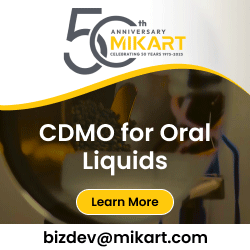
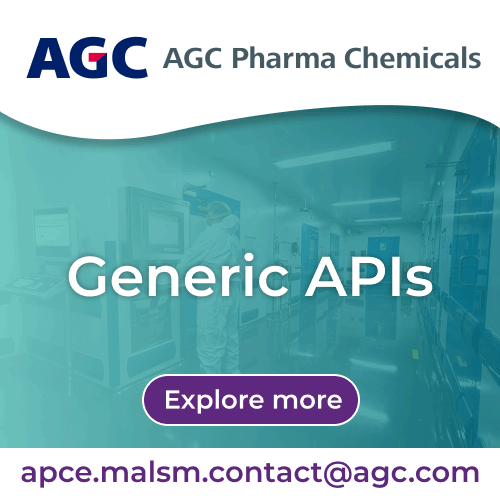
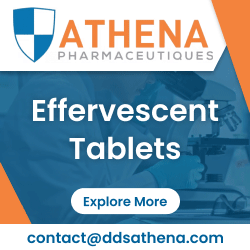
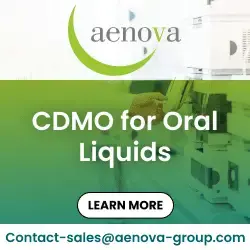
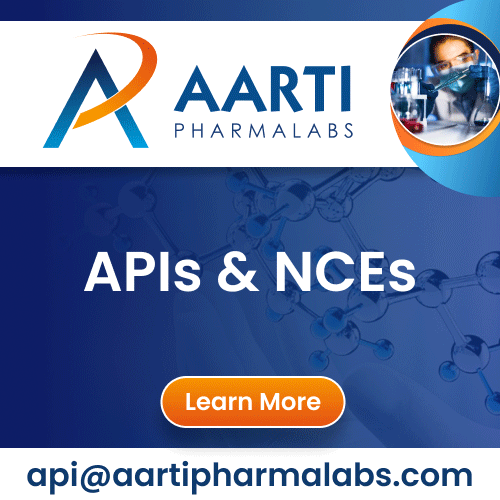
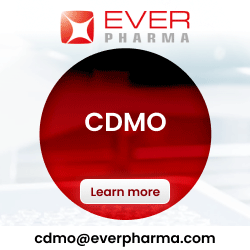




 As a CDMO, Mikart offers integrated CDMO services for Solid Dose & Non-sterile Liquid formulations.
As a CDMO, Mikart offers integrated CDMO services for Solid Dose & Non-sterile Liquid formulations.





























